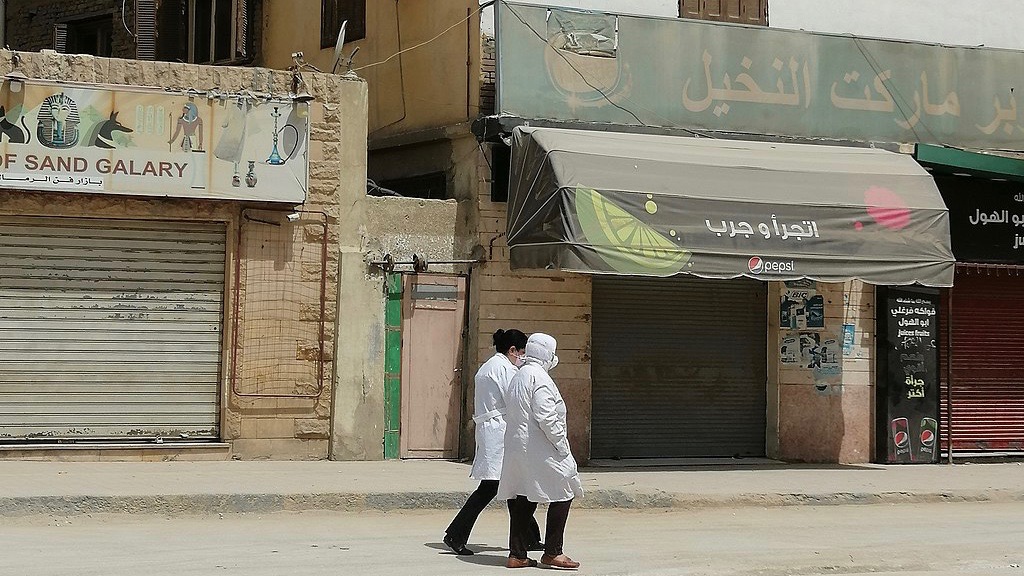The shortage of health workers in Egypt escalated last year as thousands of health workers left in search for better working conditions. At the beginning of 2023, the Egyptian Medical Syndicate (EMS) published a statement about doctors’ resignations from government hospitals. The number of doctors who resigned from government health institutions in 2022 reached 4,261—equivalent to 12 doctors per day according to EMS calculations—the most significant annual increase in the last seven years.
The number represents the continuation of upwards trends from previous years. In 2016, 1,044 doctors resigned from government institutions; in 2019, the number of physicians that left the public system was 3,507. In 2020, the number decreased relatively to 2,968, before jumping up in 2021, when it reached 4,127.
Training more doctors will not contain the shortage
Already in January 2019, well before the COVID-19 pandemic, then Minister of Health Hala Zayed acknowledged the shortage of doctors. After that, the ministries of health and education conducted a study to examine the needs of medical practice in Egypt and the requirements of its market, including a labor market analysis related to health workers. This study concluded that there existed a gap between needs and existing capacities where the number of doctors is concerned.
The study suggested solutions like educating and licensing more physicians, but it did not adequately address factors that push existing physicians to migrate and to resign from the public health system. These factors include salary structure and the state of healthcare facilities, poor working conditions, and the overall political atmosphere in the country.
There have been several calls from various stakeholders—academics, civil society, and doctors themselves—for the government to increase health spending in the state budget. The Egyptian constitution requires the government to spend at least 3% of the country’s GDP on health, but the governmental expenditure on health currently reaches only 1.5% of the GDP. The monthly salary for doctors in the public sector starts at around 2,000 Egyptian pounds (USD 62). It can take a lifetime before their income reaches 20,000 Egyptian pounds (USD 619), making it very difficult for doctors to earn a living. This drives them to turn to the private sector or work abroad.
Read also: Better health in Egypt will not be achieved through technical improvements alone
Sacrifice of doctors in public sector needs to be recognized
The Egyptian Initiative for Personal Rights, one of the most prominent civil society organizations working on the right to health in Egypt, described the information circulated by the Egyptian Medical Syndicate as shocking. The organization’s own research warned that the ongoing shortage was causing widespread burnout and problems with access for patients.
The World Health Organization (WHO) warned that the pandemic has shown us how important it is to discuss health workers’ issues and place them at the top of national health agendas. In Egypt, this conversation should become a priority, and radical interventions are necessary to improve the working conditions of physicians and other health workers.
The causes of the shortage of doctors in Egypt are complex and overlapping. Among them, we must stress the poor economic situation and the political context, which does not position health as a priority. Health workers in Egypt faced the pandemic in conditions that were far from fair. Even at that time, low wages and crammed work schedules indicated that the health system needed reform.
Nevertheless, doctors and other workers in the health sector made remarkable sacrifices while facing the pandemic. During this time, they were subjected to harassment and administrative whims in cases when they expressed their concerns, declared their needs, or criticized the government’s policies regarding the pandemic. To recognize their contribution to the pandemic response and stop the mass shortage in the public health system, the government needs to ensure more concrete investments as soon as possible.
People’s Health Dispatch is a fortnightly bulletin published by the People’s Health Movement and Peoples Dispatch. For more articles and to subscribe to People’s Health Dispatch, click here.





